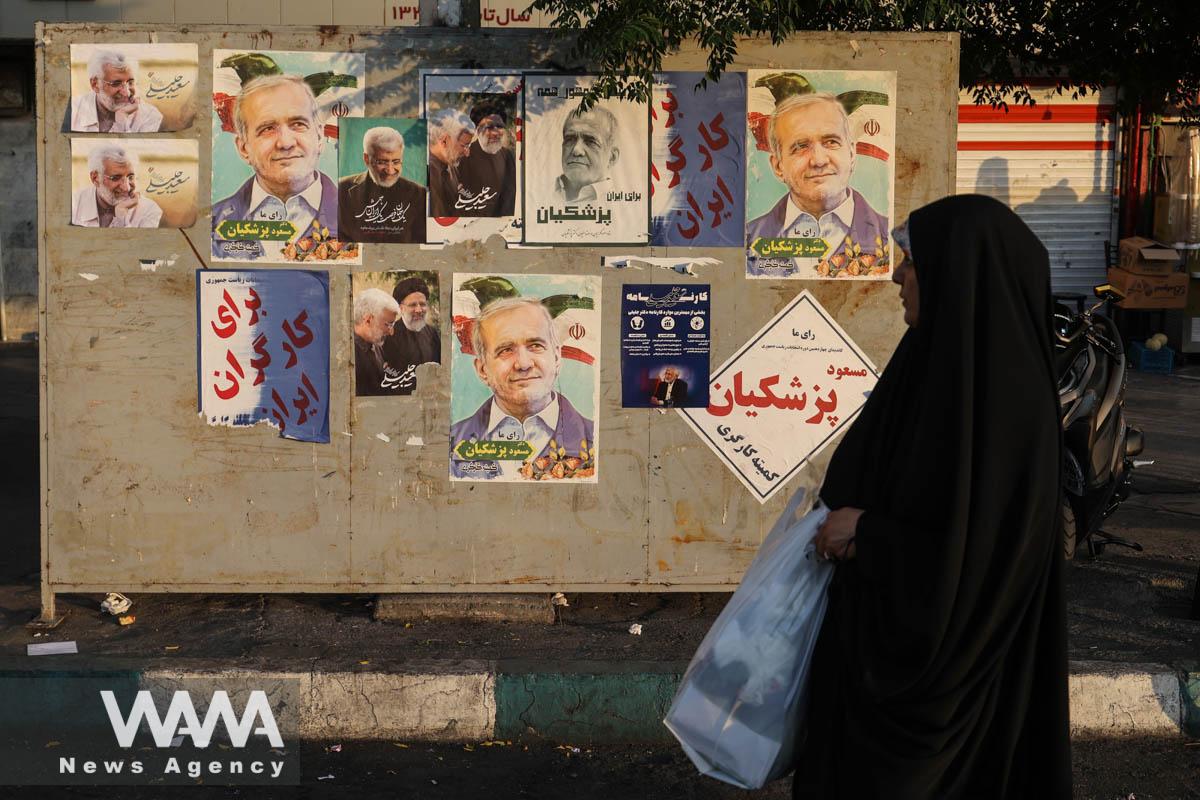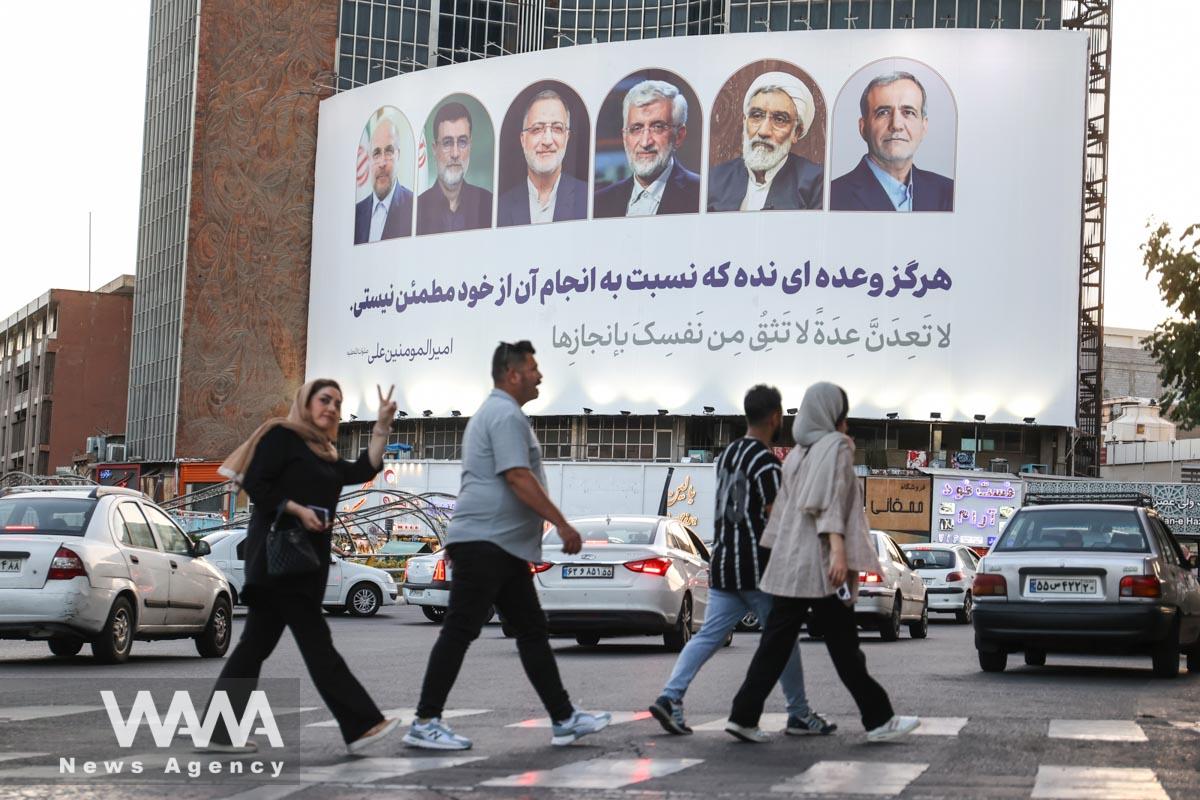Which Candidate’s Withdrawal is the Least Risky Path to Victory?
WANA (June 26)—With only two days remaining until the fourteenth presidential election, the stakes are high. While the Rouhani administration and reformists are running with a single candidate, the revolutionary front has multiple candidates splitting the vote, making this election crucial for all involved.
The top three candidates (Ghalibaf, Jalili, and Pezeshkian) have very close poll numbers. Therefore, if no changes occur among the candidates, the election will move to a second round in one of the following scenarios:
- Ghalibaf – Pezeshkian
- Ghalibaf – Jalili
- Jalili – Pezeshkian
The critical issue is the potential for vote splitting among the conservative candidates. According to recent analyses, if the conservative faction unites behind a single candidate in the first round, their chances of winning outright increase significantly, demonstrating the power of strategic decision-making in this election.
The method adopted in expert consensus meetings is to determine which candidate’s withdrawal would result in the least vote transfer to the rival candidate’s basket. This process involves a thorough analysis of each candidate’s voter base, their potential reactions to a candidate’s withdrawal, and the likely impact on the overall election dynamics.
Saeed Jalili, if he withdraws, would result in the least vote transfer to Pezeshkian. If Ghalibaf withdraws, four times as many votes would be transferred to Pezeshkian’s basket compared to Jalili’s, which could even lead to Pezeshkian’s victory in the first round.

Posters of presidential candidates Masoud Pezeshkian and Saeed Jalili are displayed in a street in Tehran, Iran June 22, 2024. Majid Asgaripour/WANA (West Asia News Agency)
Strategic Withdrawal Analysis:
Jalili’s Withdrawal: Experts argue that Jalili’s withdrawal would likely result in the least transfer of votes to Pezeshkian, maintaining a stronger position for the conservative bloc. If Jalili steps down, his supporters are more likely to consolidate their votes behind Ghalibaf rather than Pezeshkian.
Conversely, if Ghalibaf were to withdraw, a substantial portion of his votes might shift to Pezeshkian, increasing the reformist candidate’s chances, and potentially even securing a first-round victory for Pezeshkian under favourable conditions. This outcome could significantly impact the conservative faction, potentially leading to a reevaluation of their strategies and alliances in future elections.
In summary, for the conservative faction, the least risky strategy to ensure a higher probability of victory appears to be Jalili’s withdrawal, which would help consolidate conservative votes behind Ghalibaf and reduce the likelihood of a split vote benefiting Pezeshkian. The decision on whether to implement this strategy will likely shape the final outcome of the election.
The expert opinion is that Jalili’s withdrawal is the least risky and closest path to victory.
The revolutionary front candidates face a historic test: will they fulfill their revolutionary duty and make a self-sacrificing decision, or will they stay in the race until the end, as in 2013?

A billboard with a picture of the presidential candidates is displayed on a street in Tehran, Iran, June 17, 2024. Majid Asgaripour/WANA (West Asia News Agency)
Read more about it:
Current Political Landscape and Candidate Profiles:
Mohammad Bagher Ghalibaf: A prominent conservative, Ghalibaf has served as the mayor of Tehran and the current speaker of the parliament. His campaign has been marred by allegations of corruption. Despite these issues, Ghalibaf remains a formidable candidate with solid institutional support
Saeed Jalili: Known for his hardline stance, especially during his tenure as Iran’s chief nuclear negotiator. His campaign emphasizes conservative values and resistance to Western influence. In previous elections, he has withdrawn to support other hardline candidates, which might play a crucial role again if a strategic consensus is sought within the conservative faction.
Masoud Pezeshkian: A reformist candidate and former health minister, Pezeshkian’s candidacy is somewhat surprising given his previous disqualifications by the Guardian Council. His platform is expected to attract votes from disillusioned and reform-minded voters, as well as ethnic minorities. His approval is seen as an attempt to address legitimacy crises and to encourage higher voter turnout amid widespread apathy.
By WANA writer












